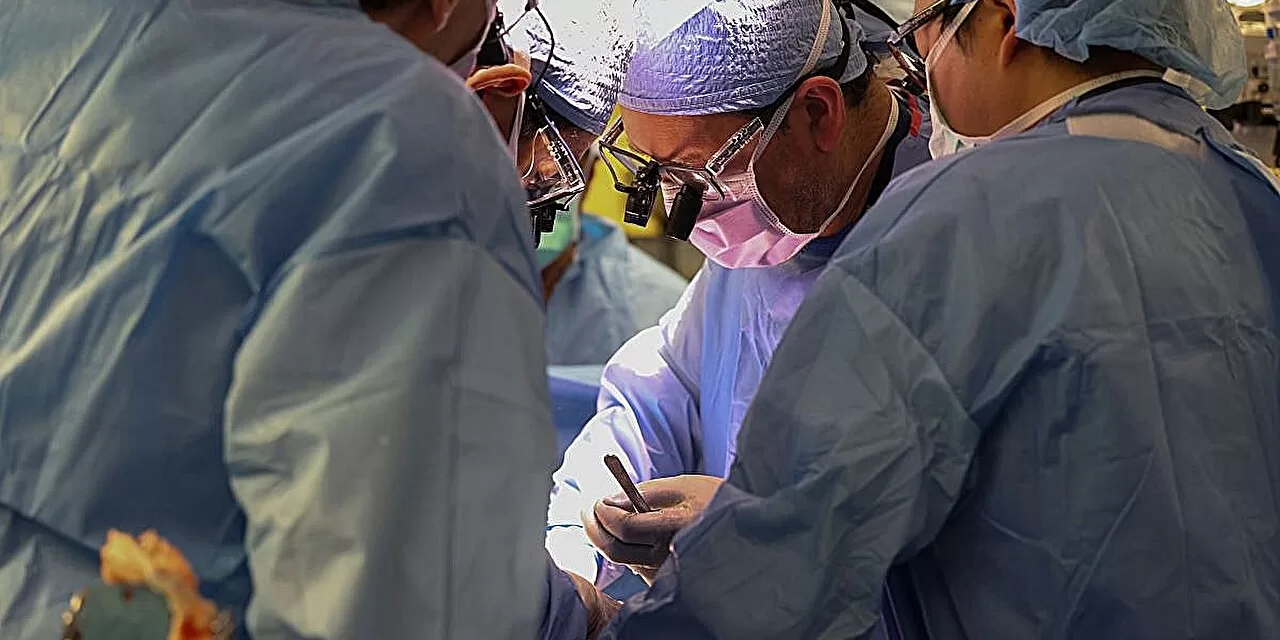Boston, MA – Surgeons at Massachusetts General Hospital have successfully performed the fourth pig kidney transplant in the United States, marking a significant step forward in addressing the nation’s critical shortage of donor organs.
The recipient, 66-year-old Tim Andrews from Concord, N.H., had been battling kidney failure and spent over two years on dialysis before undergoing the groundbreaking procedure in late January. The transplant follows a recent similar surgery in Alabama, where a woman received a gene-edited pig kidney.
A Landmark Clinical Trial
This latest transplant is part of a clinical trial approved by the U.S. Food and Drug Administration (FDA) that aims to determine the long-term viability of genetically modified pig organs in human patients. Andrews’ new kidney came from a pig developed by the biotech company eGenesis, featuring 69 gene edits designed to reduce the risk of rejection and viral infections.
Prior to the surgery, Andrews had been physically weakened by years of dialysis. Determined to improve his fitness for the procedure, he engaged in physical therapy and walking. Just one week after the transplant, he was discharged from the hospital, describing his newfound energy as life-changing. “It’s like a new engine—suddenly I had an energy machine pouring into me,” he told The New York Times.
The Future of Pig Organ Transplants
The success of this procedure brings hope to more than 100,000 Americans currently awaiting organ transplants, the majority of whom need kidneys. Due to the limited availability of human donor organs, biotech companies have been investing in genetically modifying pigs to make their organs more compatible with human bodies.
Despite promising developments, there remain questions about the safety, cost, and insurance coverage of pig organ transplants. Many kidney failure patients rely on Medicare, but it is unclear whether the program or private insurers will cover such procedures in the future.
Challenges and Ongoing Research
While Andrews and Towana Looney of Alabama have recovered well from their pig kidney transplants, two previous recipients did not survive long after their procedures. Lisa Pisano of New Jersey and Rick Slayman of Massachusetts, both of whom received pig kidneys, passed away within months of their transplants.
Dr. Tatsuo Kawai, the lead surgeon at Mass General, emphasized that these pioneering transplants are a crucial learning opportunity. “Our goal is to make genetically edited pig organs a viable, long-term solution for patients,” he stated. “Although we have a long way to go to make that a reality, this transplant is an important next step.”
Looking ahead, the FDA has approved additional xenotransplantation trials, including one led by United Therapeutics Corporation, which is set to begin later this year.
Disclaimer:
This article is for informational purposes only and does not constitute medical advice. Patients considering organ transplantation should consult with healthcare professionals for personalized guidance. The long-term safety and efficacy of pig organ transplants are still under investigation, and outcomes may vary.











